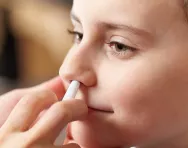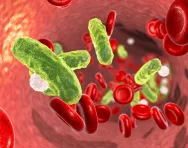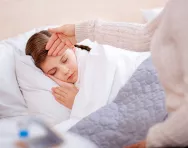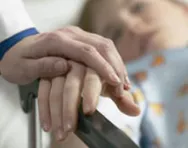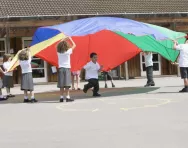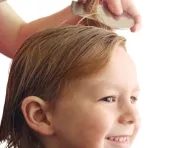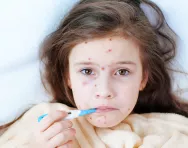Important update from TheSchoolRun
For the past 13 years, TheSchoolRun has been run by a small team of mums working from home, dedicated to providing quality educational resources to primary school parents. Unfortunately, rising supplier costs and falling revenue have made it impossible for us to continue operating, and we’ve had to make the difficult decision to close. The good news: We’ve arranged for another educational provider to take over many of our resources. These will be hosted on a new portal, where the content will be updated and expanded to support your child’s learning.
What this means for subscribers:
- Your subscription is still active, and for now, you can keep using the website as normal — just log in with your usual details to access all our articles and resources*.
- In a few months, all resources will move to the new portal. You’ll continue to have access there until your subscription ends. We’ll send you full details nearer the time.
- As a thank you for your support, we’ll also be sending you 16 primary school eBooks (worth £108.84) to download and keep.
A few changes to be aware of:
- The Learning Journey weekly email has ended, but your child’s plan will still be updated on your dashboard each Monday. Just log in to see the recommended worksheets.
- The 11+ weekly emails have now ended. We sent you all the remaining emails in the series at the end of March — please check your inbox (and spam folder) if you haven’t seen them. You can also follow the full programme here: 11+ Learning Journey.
If you have any questions, please contact us at [email protected]. Thank you for being part of our journey it’s been a privilege to support your family’s learning.
*If you need to reset your password, it will still work as usual. Please check your spam folder if the reset email doesn’t appear in your inbox.
The primary school parent’s guide to winter health
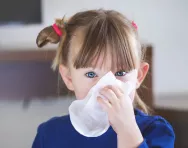
When you have a primary school child, it can feel as if they’re permanently under the weather, particularly in the winter months.
Coughs, colds, sore throats, earaches and sickness tend to run rampant amongst young children, and it can be miserable for the whole family.


Download your child's festive activity pack now!
- KS1 & KS2 packs
- Christmas-themed English, maths and science activities
- Perfect activity pack to keep kids busy and learning over the Christmas break
‘Between September and March, the weather conditions make it the perfect time for viruses to breed,’ says Dr Philippa Kaye, a GP who is highlighting the NHS England and NHS Improvement winter campaigns.
This means it’s not unusual for your child to pick up one bug after another.
Covid-19 update
It is currently recommended by the NHS that if your child has symptoms of Covid-19, they should do their best to avoid contact with other people. If they don't feel well enough to go to school, then they shouldn't.
The symptoms to be aware of are:
- A temperature above 37.8C
- A new, continuous cough
- A loss of, or changes to, their sense of taste and/or smell
- Blocked or runny nose
- Sore throat
- Diarrhoea
- Loss of appetite
- Headache
NHS guidance currently states:
It is not recommended that children and young people are tested for COVID-19 unless directed to by a health professional.
If a child or young person has a positive COVID-19 test result they should try to stay at home and avoid contact with other people for 3 days after the day they took the test, if they can. After 3 days, if they feel well and do not have a high temperature, the risk of passing the infection on to others is much lower.
Why are children ill so often?
If you think your child is almost always ill, you may not be far wrong: the average child has between eight and 12 colds a year.
‘Children are super-spreaders who pass bugs between themselves at a rate,’ Dr Kaye explains. ‘If one child in a class is infected, it’s quite possible that all of them will end up infected.’
This is because they tend not to be great at blowing their noses in a tissue, putting the tissue in the bin and then washing their hands – a sleeve is often used instead!
They may be lax at handwashing after going to the toilet, and put things in their mouths, which encourages the spread of viruses.
They also have a developing immune system that is still learning how to fight off infection, making them more prone than adults to picking up minor illnesses.
‘The good news is that fighting these bugs will make their immune system stronger in the long run, but it can feel like one long slog from September to March,’ Dr Kaye adds.
Treating minor illnesses at home
Most winter bugs can be treated at home with the right medication and some TLC.
Coughs, colds, sore throats and earache
You may not need to give your child any medication if they have a mild respiratory virus, although you can give infant or child paracetamol and/or ibuprofen (following the directions on the bottle) if they have a temperature or are feeling unwell.
Don’t panic if your child’s temperature is high – especially if they’re otherwise in good spirits.
‘I always advise treating the child, not the temperature,’ Dr Kaye explains.
‘If they have a temperature of 38.5C but are still running around quite happily, you don’t need to give medication. On the other hand, if they only have a slight fever but are miserable and lethargic, give them paracetamol or ibuprofen.’
Also consider asking your community pharmacist for advice, as they are qualified healthcare professionals who can offer clinical advice on over-the-counter treatments that might make your child more comfortable, such as cough syrup and decongestants.
Diarrhoea and vomiting
If your child is sick or has diarrhoea, it’s important to replace the fluids they’ve lost by offering drinks little and often.
‘You can give them water, milk or squash – whatever they’ll drink,’ says Dr Kaye. The NHS advises against giving fruit juice or fizzy drinks, however, as they can make diarrhoea worse.
You can also get rehydration sachets from the pharmacy which are mixed with water and help to prevent your child becoming dehydrated.
‘If you’re concerned that your child isn’t drinking or peeing, try a fluid challenge, where you give them 5ml of water in a medicine syringe every five minutes,’ Dr Kaye advises.
‘If they can’t keep that down, or haven’t peed in six hours, you should take them to A&E.’
When to see your GP
‘With most coughs, colds and sickness bugs, you really don’t need to see a GP,’ says Dr Kaye. ‘Remember that there are other ways you can get advice, such as your pharmacist or NHS 111.’
If, however, your child has a fever that isn’t coming down despite regular paracetamol or ibuprofen, you should make a doctor’s appointment.
‘It doesn’t have to go right back down to normal, or to stay down once the medication has worn off, but as long as it’s coming down significantly, I’m not usually worried,’ Dr Kaye advises. ‘If, however, you can’t get it to come down or it lasts four to five days, you should see the GP.
‘I’d also want to see any child who isn’t drinking or peeing, or who is very lethargic.’
Sometimes it can be difficult to get a doctor’s appointment on the day. ‘If you tell them it’s for a young child, they should try to see them, or at least get the duty doctor to phone you, but if not, you can call NHS 111 for advice or go to a walk-in centre,’ says Dr Kaye.
Does your child need antibiotics?
GPs are trying hard to reduce the use of antibiotics. This is because they were overused in the past, which has led to bacteria becoming more resistant to them.
‘Antibiotic resistance is one of the greatest health emergencies of the current time,’ Dr Kaye explains.
‘Bacteria have evolved to survive antibiotic treatment. This means that they’re less effective when they do need to be prescribed – we could be heading for a time where even a simple infection needs to be treated in hospital with IV antibiotics.’
Because of this, antibiotics are no longer routinely prescribed for chest infections, ear infections or sore throats.
‘These illnesses are usually viral, which means antibiotics simply don’t work,’ says Dr Kaye.
Antibiotics can also cause side effects themselves, such as diarrhoea and thrush.
‘We would never withhold antibiotics from a child who needs them, but if we tell you that they’re not necessary, we would gently ask that you respect that decision,’ says Dr Kaye.
The facts about flu
Flu can be a horrible illness for young children, but the good news is, children can receive the flu vaccine in the form of a simple nasal spray,* so there’s no need for needles.
Giving your child the vaccine not only helps protect them, but also protects vulnerable people around them from becoming unwell.
Children in Reception and Years 1-6 can be given the vaccine at school, so look out for the consent form in your child's bag.
*Not all children will be able to have the nasal spray. Some children with certain health conditions will need to be given an injected vaccine.
Should your child be off school?
In the case of coughs and colds, your child probably won’t need to stay off school. ‘The symptoms can last for weeks without them feeling particularly unwell, so they don’t need to be kept at home,’ explains Dr Kaye.
They should stay off school if they have a temperature, however.
‘Some parents give their child paracetamol in the morning and send them to school, but this isn’t fair on the child or the other children in the class: they’ll be spreading infection, and will likely start to feel unwell when the medication wears off,’ Dr Kaye says.
In the case of vomiting and diarrhoea, children must be kept at home for 48 hours after their last bout – but some parents flout this rule.
‘If you know a child has been sent to school within that 48-hour window, you can tell the school. They may phone the parent and remind them of the sickness policy, but ultimately, there’s nothing they can do,’ Dr Kaye says.
‘Returning to school when they’re still shedding virus will make the bug spread throughout the school, so it’s important that all parents follow the rules.’
Public Health England publishes a list of how long children should stay off school with common childhood illnesses.
How to keep your child healthy
Winter bugs are part and parcel of primary school life, but there are steps you can take to limit their spread and keep your child as healthy as possible.
- Teach your child to blow their nose in a tissue, put the tissue in the bin and then wash their hands. ‘Realistically, when they’re at school, they won’t be able to wash their hands every time they sneeze, but putting their tissue in the bin is really important,’ says Dr Kaye. You could ask their teacher if they could keep a small bottle of hand sanitiser on their table.
- Teach them to wash their hands with soap every time they use the toilet and before eating.
- Encourage them to eat a healthy diet with plenty of fruit and veg, and to drink regularly.
- If your child has a cough, cold or sickness bug, avoid sharing towels, cups etc until they’re better.
- If they have diarrhoea or vomiting, clean the toilet seat, flush, taps, surfaces and door handles every day.
- Don’t let them go swimming for two weeks after a D&V bug.
Coping when your child is ill
The winter months can be a nightmare if your child is recurrently off school sick – especially if you’re a working parent.
‘I’ve got three children aged seven and under, so I often have at least one off sick, says mum Zoe. ‘Thank goodness I’m self-employed and can juggle my work around them when they’re poorly.’
Legally, you’re allowed ‘reasonable’ time off work to deal with an emergency involving your child – for example if they’re too unwell for school or you need to take them to a doctor’s appointment – although it may not be paid.
Your employer decides what is ‘reasonable time off,’ and when this period ends, you could be asked to take annual leave or parental leave (up to four weeks a year, in blocks of a whole week; this could be helpful if your child has chickenpox, for example).
Often, though, coping with a sick child who’s off school involves juggling care between both parents if possible, grandparents and others who may be willing to help.
‘It’s hard work, and can be frustrating, but remember: there’s nothing wrong with your child watching six hours of Peppa Pig as a one-off if it keeps them happy and gets you through the day,’ says Dr Kaye.
For more winter health advice, please visit: nhs.uk/winteradvice
